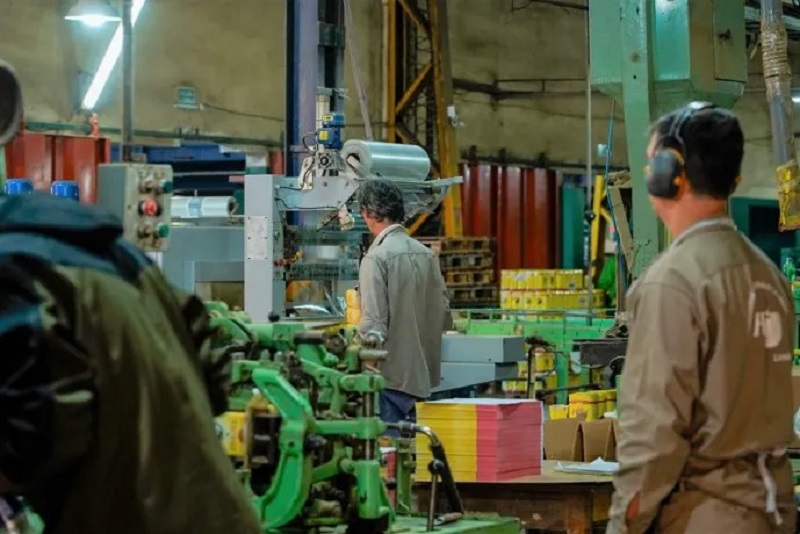After Argentina’s Chamber of Deputies shelved 12 votes against the executive’s policies and intentions during another black Wednesday for Javier Milei, the Central Bank delivers bad news: reserves are vanishing today.
In just three months the International Monetary Fund granted the Argentine government 14 billion dollars in loans, deepening Argentina’s external debt; first, 12 billion in April, and most recently at the end of July, a further two billion.
The credit agreement sealed on 11 April last envisages loans totalling 20 billion dollars.
However, the Central Bank reported reserves have fallen again: over three days they dropped by 1.282 billion dollars, equivalent to two-thirds of the IMF’s latest disbursement; that is, 65 percent. Thus, reserves have shrunk to 40 billion dollars. And where is this immense vanishing sum ending up?
CIFRA Centre, dedicated to economic and social analysis, essentially indicated in a recent report that from the April loan to late June, in barely a month and a half, capital flight absorbed 44 percent of those 12 billion dollars, showing dollars are being taken out of the country shortly after entering.
According to CIFRA, a research centre of the Argentine Workers’ Central, the amount of external asset formation recorded in May exceeded the monthly averages of all years surveyed by the Central Bank.
It concluded that the economic model promoted by the government is characterised by net foreign currency flight and growing external indebtedness.
In pesos, the government now faces record August maturities exceeding 30 trillion in Argentine currency.
The National Treasury confronts local currency debt payments this month equivalent to a monetary base, primarily in short-term peso bonds. Although a swap with the Central Bank has already occurred, pressure from high interest rates, the possibility of rolling over debts into future contracts, and exchange rate risk remain latent.
Meanwhile, the wage decline burdening society and pressuring the government continues to weigh heavily. During the first half of 2025, most major unions closed their labour contracts below the period’s inflation rate.
Of the twelve principal unions surveyed, only the Mechanics and Allied Workers’ Union of Automotive Transport (SMATA) managed to outpace inflation, with a real improvement of just over two percentage points. Bank workers broke even while other trade unions registered losses.
Amid fiscal adjustment, railway workers lead the wage decline with over 10 percent real loss, followed by building workers with an 8.2 percent fall, and state workers of the Civilian Personnel Union with a 6 percentage point retreat, according to a report by Synopsis consultancy.
Finally, the inflation index for Buenos Aires City accelerated in July reaching 2.5 percent, representing a 40.9 percent year-on-year accumulation, as producers passed on price increases ranging from 3 to 9 percent to August markets – an ill omen for weeks ahead.
The items driving the increase reported by the Buenos Aires Institute of Statistics and Census were Restaurants and Hotels (5.3 percent), followed by Insurance and Financial Services (3.8 percent), Recreation and Culture (3.6 percent), Transport (3.6 percent), and Information and Communication (2.8 percent).
Facing this outlook, the vast majority of millions of Argentines who pilgrimaged and marched nationwide on Friday for Saint Cajetan’s Day invoked the saint of bread, peace, and work to give thanks for having or having obtained employment, or to request employment.
Meanwhile Milei, informed that he lacks sufficient votes from allied legislators in Congress to repeal laws approved by the Chamber of Deputies – which the Senate will very likely also sanction – urgently gathered his closest Cabinet ministers to determine the way forward.




